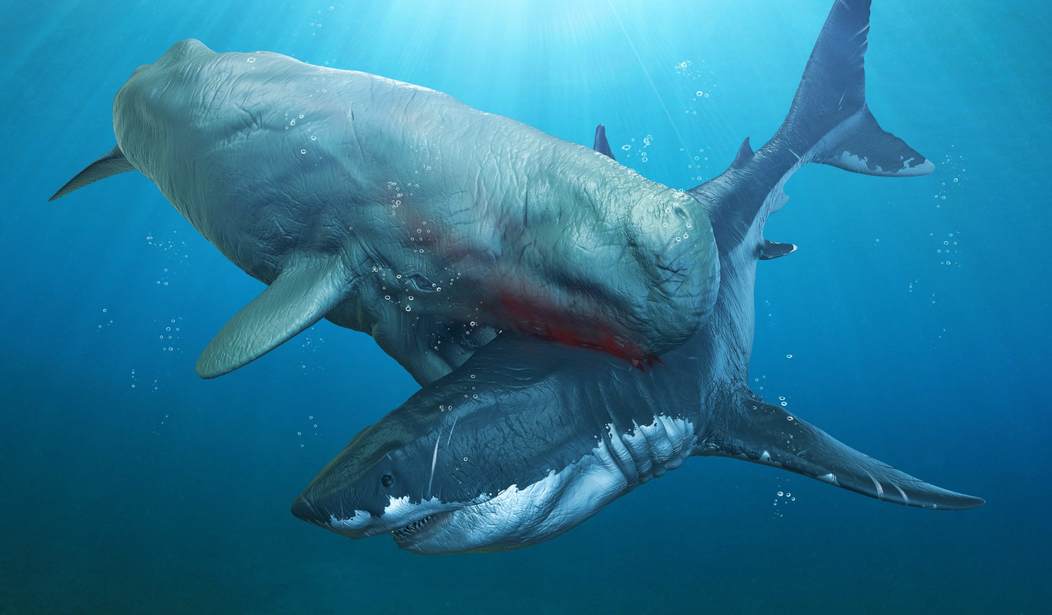The Old Testament describes two mysterious creatures that have puzzled Bible scholars for centuries. The creature called “Leviathan” is mentioned in Job 3:8; 41:1-41; Psalm 74:12-15; Psalm 104:25-27; and Isaiah 27:1-2. “Behemoth” is found only in Job 40:15-24. The Bible describes them as animals of spectacular size and strength.
Leviathan seems to be a creature that is at home in the water. Job 41:1 and 7-8 asks if it is possible to draw out this animal with a hook, harpoon, or fishing spears. Then verses 9 and 10 indicate that Leviathan is so ferocious that no one has any hope of overcoming him, and it would be courting death to stir him up from his lair.
Verses 15 through 21 suggest that he is a scaly creature who even shoots out fire and smoke from his nostrils and mouth! (Many cultures around the world, it seems, have their stories about fire-breathing dragons!) And even the best weapons — arrows, slingshots, darts, and javelins in verses 28 and 29 — have no effect on this monster from the deep.
Behemoth in Job 40:15 is seen as an herbivore, but one with immense size (verses 16-19). His ribs are “like bars of iron,” his bones are like “beams of bronze” and “he moves his tail like a cedar” (verses 17, 18). He is a land creature but seems to prefer living in a river (verses 22 and 23). Although he is large and powerful, there is no ferociousness associated with him as with Leviathan.
One “camp” of scholars suggests that the Bible is using hyperbole (something rather common in Scripture) to describe common animals. Supposedly Behemoth is a hippopotamus and Leviathan is a crocodile. Other scholars suspect that the author is describing real creatures that may have been extinct for ages. Maybe they were describing very large reptiles, and using poetic exaggeration to articulate some of their behavior (like fire coming out of the nostrils and mouth). Maybe.
We have to remember that Job and Psalms are poetry. Isaiah too is poetry (with the exception of prose in chapters 36-39). Poetry is filled with symbolic language. I think the best answer, and one that is consistent with the text, is that the authors are using these creatures (real or imagined) as symbols of God’s authority over the greatest powers of nature.
The mythical stories of Israel’s neighbors were widely known in the ancient Near East. In Ugaritic (Canaanite) literature, “Leviathan” was a seven-headed sea monster. It is certainly possible that this mythical creature was based on some monstrous animal that the ancient people saw, but is now extinct (without seven heads, of course).
In the Old Testament, Psalm 74:14 tells us that Yahweh “broke the heads of Leviathan” and gave the pieces to feed His people in the wilderness. Does that mean that God literally killed a multi-headed sea monster, cut it up into little bits and pieces, and fed monster flesh to Israel while they wandered in the desert? No. Of course not. And there is no such event in the story of Israel’s wilderness journey.
Next Page: Could Leviathan be a symbol of Israel’s enemies whom God defeated?
But just like “Rahab” the mythical serpent was a symbol of Israel’s evil enemies (Egypt, Babylon), so “Leviathan” is symbolic of the same enemies. All Psalm 74:14 means is that Yahweh broke Israel’s enemy, Egypt, and daily provided for His people as they wandered for 40 years in the Sinai desert.
The Israelites often used what we identify as “polemic oracles” against pagan deities in their literature. For example, in Canaanite legends, their main god Baal is seen coming to earth riding on a storm with lightning bolts in his hands. Take a look at Psalm 18:7-12. There David writes that Yahweh is the one who comes down from heaven, riding upon a storm, with lightning in His fists.
It is simply a poetic way for David to say, “You pagans think that Baal is powerful, but you’re wrong. Baal is nothing. Yahweh is the only true God, and He is the only One who rules all of nature. And He is the One you have to deal with.” It was common for the Israelites to take a pagan myth, turn it against the pagans, and declare that the God of Israel was the only one with power over all the nations and nature.
Although Leviathan could be a name for a very large but now extinct creature, it seems more reasonable to me to acknowledge that it was probably just the mythical creature of other neighboring nations.
As for Behemoth, there is no mythical creature in neighboring pagan literature by that name, so I am inclined to think that it is a real animal that Job is describing. The identity of this impressive land animal remains a mystery. Whether it is just a hippo or some long extinct creature, it teaches that God has authority over even the biggest forces in the animal kingdom.
In short, the Israelites used these names to teach their people that the best of their enemies’ stories and the most frightening forces of nature are no match for the power of the one true God, Yahweh.









Join the conversation as a VIP Member